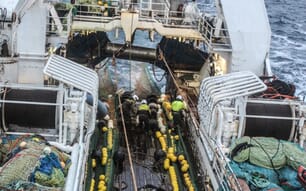The province has announced C$25,000 in funding, under the government’s Fisheries Research Grant Program, to support the project, reports SouWester.
“Several decades ago, haddock supported substantial fishing activity off the south coast of the island until the stock went into decline,” said Derrick Dalley, Minister of Fisheries and Aquaculture.
“Recent studies by the Centre for Fisheries Ecosystems Research indicate the population may have grown, and given the potential value of a sustainable haddock fishery, the Provincial Government has committed C$25,000 to help gather more information about the size of this fish stock.”
The centre will examine acoustic data to determine the biomass and abundance of haddock in the area. These data are gathered by using acoustic instruments that detect and quantify fish species.
The centre will also conduct research on the age and growth rates of haddock using samples collected during the 2012 and 2013 RV Celtic Explorer research surveys.
“We are pleased to lead valuable research into various fish species that will help inform fisheries management decisions,” said Dr Sherrylynn Rowe, research scientist with the Centre for Fisheries Ecosystems Research.
“Should our research indicate that the haddock population is sizeable enough to support commercial fishing activity, it will be very valuable to integrate the data with federal research that informs future quota decisions.”
Since 2010, the provincial government has committed more than C$12 million toward fisheries science initiatives that monitor the status of various fish stocks off Newfoundland and Labrador, as well as the marine environment.



